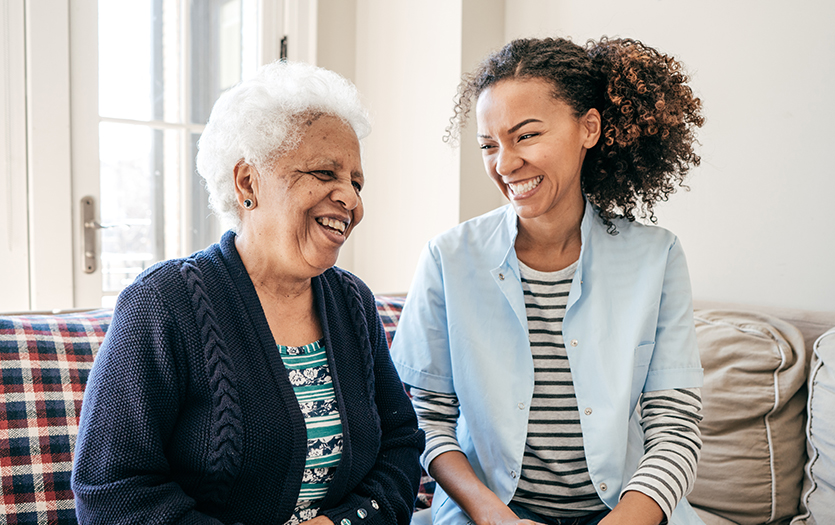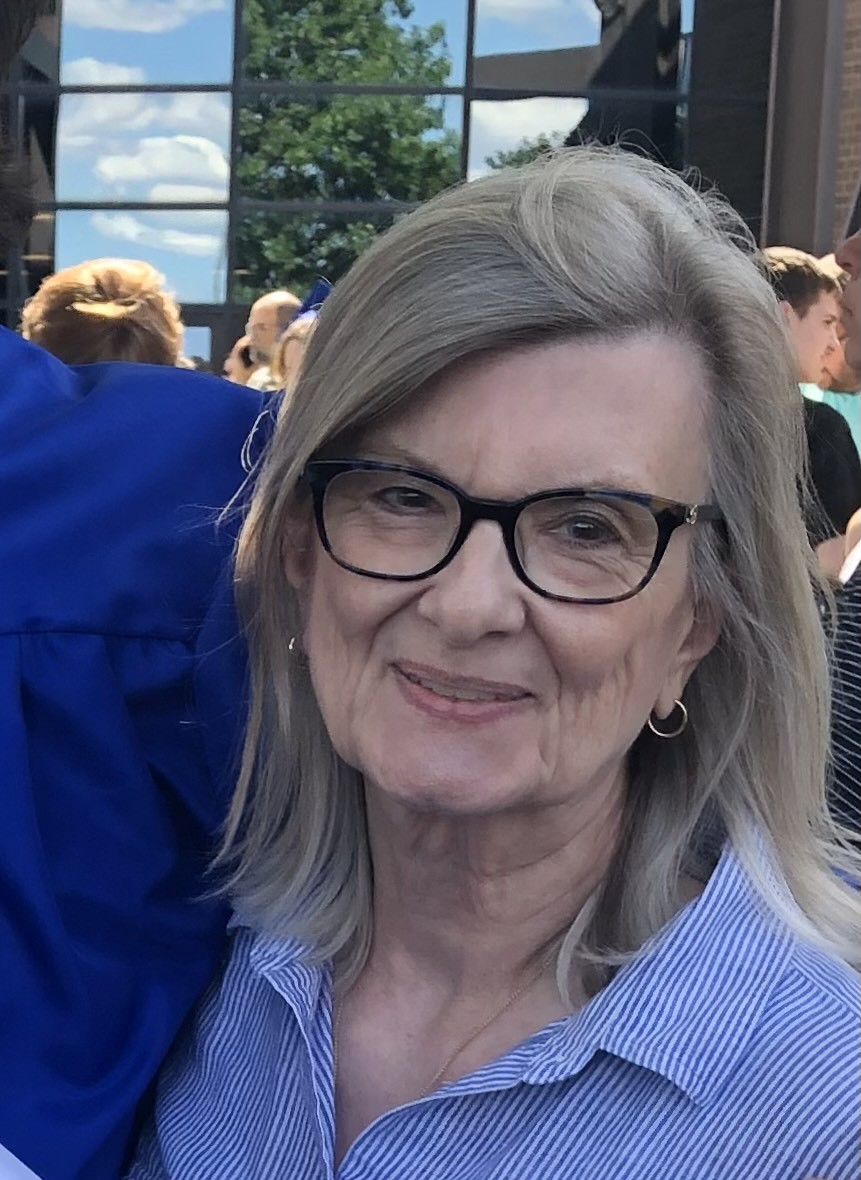
The presence of a hospice volunteer offers a unique form of support that complements the efforts of a care team consisting of physicians, nurses, social workers and chaplains. While these specialists focus on a patient's physical, logistical and spiritual needs, volunteers contribute the element companionship during an emotionally challenging time. Jane Sandor, retired schoolteacher and principal, and Sally Stuckey, former executive director of a medical practice in Lafayette, IN, share how their personal experiences with hospice care shaped their desire to give back.
What was your initial impression of hospice care before you began volunteering?
Sally: I've known about it for a long time. Both my mother and sister had hospice before they died. Two of the physicians in the office in Lafayette also worked as hospice physicians, so I talked to them a lot. One of them gave me the book, Being Mortal, which is a beautiful read for anyone involved in hospice.
Jane: To be honest, I had very little knowledge of hospice care. It always seemed rather ominous to me, like guaranteed death within a matter of time. I was definitely a charter member of the death-avoiding culture. I didn't want to think about those things, but that has completely and dramatically changed.
How did your personal experiences inspire you to become a hospice volunteer?
Sally: My mother and sister both had wonderful experiences with hospice. My mother was only in hospice for a week, but in that short time, her hospice team was so good about bringing things like snacks and drinks and cared for her lovingly. When my sister died, she was in hospice for eight weeks. The last two months of her life were comfortable. She did not have to experience any pain, and hospice was very responsive when we had concerns.
I love the idea that no one should suffer in the last days of their life when they know the end is coming. It was just something I always knew I would want to be part of. I think it's really important that we show up for others as they wind down their time on Earth.
Jane: When my husband, John, was diagnosed with idiopathic pulmonary fibrosis, we began with palliative care and then went into hospice. The hospice environment and care team went absolutely beyond any and all expectations. His case manager was Lorie Lucas, who not only cared for my husband, but for my entire family. She made sure that John was always comfortable and provided great emotional support and knowledge when we needed it.
That experience through Lorie taught me the grace and beauty found in death. I vividly remember when he was in the last couple days of his life, she was leaning down and whispering in his ear, saying, "John, it's Lorie, and we're going to take care of you." Seeing that and knowing that I could possibly do that for someone else was the most eye-opening, heart-opening experience of my life.
How do you offer support to the patients and their families?
Sally: I always ask if they need anything. I try to think, if I were in a nursing home and couldn't get out, drive or move, what would I be missing? It's not usually big things; I had a patient that I took milkshakes to because she couldn't eat a lot. I've done that for several of my patients. I think it's something that takes them back to a better time.
Jane: Many of my patients have dementia, so they are easily frightened by new things or by not knowing what's going on. For them, I like to step back in time and talk to them about what their garden was like growing up or about their favorite birthday present. I try to remove any uncertainty or fears they might have and let them know that they are okay now because they're in a place of great love and safety and everyone is there to care for them.
What do you find most rewarding about being a hospice volunteer?
Sally: The whole experience is rewarding. It's almost beyond words. I often think I'm getting so much more in return than I feel I'm giving. Hospice is a ministry of its own. Not that I preach religion to anybody, but it is just such a gift that I'm blessed to be able to give, and it's been such a blessing in my retirement to be able to do this.
Jane: The most rewarding aspect for me is the gift of life and knowing that life is precious. We're called here to respect the dignity of each life, and every individual I've been honored to work with has impacted me. I've always thought I had a servant's heart, but each person I've worked with has enriched it. They have made it bigger, more loving and more accepting. None of us have the right answers, and all of us are going to make mistakes, but that's okay, because we are simply here to love and care for one another.
What's the most challenging aspect of being a hospice volunteer?
Sally: Of course, you can't see somebody for weeks, or years even, and not miss them. Just like with my mother and sister, as sick as they were, I couldn't wish them back that way. As long as they're not suffering, afraid, or alone, and they know they're loved, I feel like it was a good life, and it got to end in a good way.
Jane: There's a certain fragility and uncertainty in hospice work. You never know how it will go or that you are doing what this person needs. But I do know that, through this experience and meeting these people, they have helped me become a better version of myself. The thing that I find most difficult is letting go of the fact that I wish I had known these people earlier in my life. I'm blessed to have had that one, two or six months that I might get with them.
What would you say to someone considering becoming a hospice volunteer?
Sally: Don't let being afraid of a situation keep you away. I love volunteering with Parkview because I always feel like they have my back and that they'll never send me into a situation I can't handle. I've mentored many volunteers coming through. I tell them you have to be willing to listen without judgment and accept that you can't fix their situation. You're there to love them where they are, listen as much as you can and just be supportive.
Jane: When people learn that I'm a hospice volunteer, many say they could never do it. I always wonder how they can say that if they've never experienced it. Hospice work isn't for everyone, but I would suggest they try it. Take someone with you on the first visit to ease your fears or help answer questions. If it's not for you, then it's not for you. If it is, you've opened a door or a window to a whole new view of life.
I think if we could do a better job of demystifying death and somehow easing that death-avoidant culture, it would just make life so much better for those who are dying, who have lost loved ones and just for our own personal preparation for death.

.jpg)
(Left: Sally Stuckey, Right: Jane Sandor)
Become a volunteer
If you have a caring and compassionate heart, your presence can make a world of difference to someone who needs comfort and companionship during their final days. Those interested in volunteering should fill out an application online at Parkview.com/hospicevolunteer. A volunteer coordinator will then contact you with more information about upcoming training dates. For more information, call 260-373-9800.



